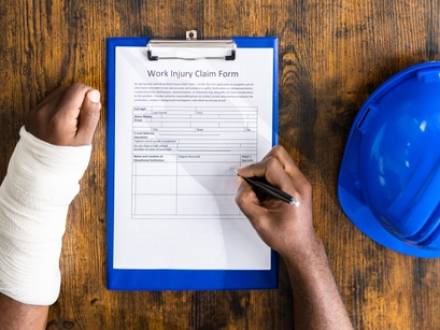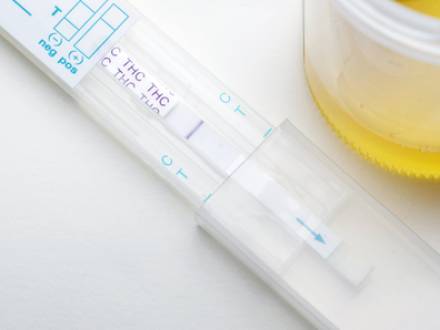Recent Blog Posts
Nursing Home Kidney Dialysis Negligence: How Common Is It?
 A Richton Park nursing home was recently found negligent in the death of an elderly resident. After a week spent presenting the case, the jury reached a verdict in favor of the plaintiff in just three hours. The award of $5.5 million ties with another nursing home neglect award in the county for the largest verdict.
A Richton Park nursing home was recently found negligent in the death of an elderly resident. After a week spent presenting the case, the jury reached a verdict in favor of the plaintiff in just three hours. The award of $5.5 million ties with another nursing home neglect award in the county for the largest verdict.
The resident missed 13 days of necessary dialysis treatments, which caused toxic waste buildup in his body and led to his death. The 85-year-old man was admitted to the nursing home in late 2020, following a serious fall. According to court testimony, the man required dialysis three times per week but had not received treatment in 13 days.
Approximately 80,000 patients who require kidney dialysis reside in nursing homes. Kidney dialysis is a life-sustaining treatment for many elderly nursing home residents in Illinois. When the treatment is not administered properly – or at all – the consequences can be severe illness or death. Infections, blood pressure crashes, muscle spasms, difficulty breathing, confusion, pain between the ribs and hips, and easy bruising or bleeding are all symptoms of kidney failure.
Can You Be Fired for Filing a Workers' Compensation Claim?
 If you have been injured at work in the state of Illinois, you may be worried about more than your recovery – you may fear you will lose your job when you file a workers’ compensation claim. Many employees are hesitant to report injuries because they fear retaliation from their employer, or they are unsure of their rights.
If you have been injured at work in the state of Illinois, you may be worried about more than your recovery – you may fear you will lose your job when you file a workers’ compensation claim. Many employees are hesitant to report injuries because they fear retaliation from their employer, or they are unsure of their rights.
Illinois law (820 ILCS 305) does protect workers from being fired for seeking workers’ compensation benefits, but the legal protections are not absolute. It can be extremely helpful to speak to a Joliet, IL workers’ compensation attorney to find out where you stand, what you need to know about your rights, the limits to the protections in the state, and what to do if you believe you have been wrongfully terminated.
The Hidden Costs of a Reckless Driving Conviction in Illinois
 A citation for reckless driving (625 ILCS 5/11-503) can be much more than a simple traffic ticket in Illinois. While the immediate penalties, including fines or even a few days in jail, are significant, the true cost of a reckless driving conviction can go far beyond justice system penalties. Skyrocketing insurance premiums, job loss, difficulty obtaining employment, and a permanent criminal record may be just the beginning.
A citation for reckless driving (625 ILCS 5/11-503) can be much more than a simple traffic ticket in Illinois. While the immediate penalties, including fines or even a few days in jail, are significant, the true cost of a reckless driving conviction can go far beyond justice system penalties. Skyrocketing insurance premiums, job loss, difficulty obtaining employment, and a permanent criminal record may be just the beginning.
The impact of a reckless driving conviction can last for many years, adversely affecting many aspects of your future. If you are facing reckless driving charges, it is extremely important that you have a highly skilled Joliet, IL criminal defense lawyer advocating for your rights and working to minimize collateral consequences.
What is Reckless Driving?
Reckless driving is more than a simple driving mistake; rather, it is a willful and intentional driving behavior. Under the law, when a driver exhibits a wanton or willful disregard for the safety of others or the property of others, he or she has engaged in reckless driving. Some driving behaviors that can trigger reckless driving charges include:
Addressing a DUI Conviction with Potential Employers
 A DUI conviction can feel like a major setback, especially when you are applying for a new job. It can be extremely stressful to worry about whether you should tell a prospective employer about your DUI conviction or let them find out on their own while hoping they do not. Are there ways to explain a DUI conviction without ruining your chances at an incredible job opportunity? What if you have been charged but not yet convicted?
A DUI conviction can feel like a major setback, especially when you are applying for a new job. It can be extremely stressful to worry about whether you should tell a prospective employer about your DUI conviction or let them find out on their own while hoping they do not. Are there ways to explain a DUI conviction without ruining your chances at an incredible job opportunity? What if you have been charged but not yet convicted?
There are ways to handle this difficult conversation that can potentially change the outcome. With the right approach, you can be honest with a prospective employer without being defined by one mistake. If you are currently facing DUI charges, an experienced Joliet, IL DUI attorney will work hard on your behalf to keep a DUI conviction off your record.
Is DUI Disclosure Always Legally Required?
Illinois statute 625 ILCS 5/11-501 governs DUI charges in the state, but disclosure of that information has many gray areas. Most job applications ask whether an applicant has been convicted of a criminal offense, although some specify a felony criminal offense. If you have only been charged, then you are not required to disclose this information.
Can an Undocumented Worker in Illinois Collect Workers’ Comp?
 Although workers’ compensation laws are different in each state, in Illinois, an undocumented immigrant who is hurt while on the job has the right to file for workers’ compensation benefits. These rights are not affected or abridged in any way by citizenship or immigration status. In fact, under 820 Ill.Comp. Statute Section 305/1(4)(b)(2), "aliens" are specifically included as employees.
Although workers’ compensation laws are different in each state, in Illinois, an undocumented immigrant who is hurt while on the job has the right to file for workers’ compensation benefits. These rights are not affected or abridged in any way by citizenship or immigration status. In fact, under 820 Ill.Comp. Statute Section 305/1(4)(b)(2), "aliens" are specifically included as employees.
In 2008, Workers’ Comp of Illinois vs. Econ. Packing Company held that under Illinois workers’ compensation laws, undocumented aliens who are injured or killed on the job have a right to workers’ compensation benefits. If undocumented employees were to be excluded from workers’ compensation coverage, employers could be incentivized to place them in unsafe situations or those that clearly violate OSHA regulations.
Employers might also intentionally illegally hire employees who are not authorized to work in the United States, placing them under adverse working conditions. Whether you are undocumented or legally working in Illinois, you are entitled to collect workers’ compensation benefits when you are injured on the job. A Joliet, IL workers’ compensation lawyer can help you obtain the benefits you need and deserve.
The Most Critical Evidence in Your Car Accident Claim
 Being involved in a car accident is guaranteed to ruin your day. However, the adverse effects of a car accident can last much longer than a single day. Depending on the extent of your injuries, you may be unable to return to work and make a living for weeks, months, or even years. Your injuries from the car accident could require ongoing medical treatment and could potentially even result in partial or total disability.
Being involved in a car accident is guaranteed to ruin your day. However, the adverse effects of a car accident can last much longer than a single day. Depending on the extent of your injuries, you may be unable to return to work and make a living for weeks, months, or even years. Your injuries from the car accident could require ongoing medical treatment and could potentially even result in partial or total disability.
When another driver causes a car accident through his or her negligence, then that driver – or his or her insurance – should be responsible for your damages. In order to ensure you receive a full and fair settlement for your damages, it is essential that the evidence backs your version of the accident since proving fault is the bedrock of a solid car accident claim.
Evidence can come in various forms, including witness statements, medical records, police reports, videos, and other types of physical evidence. Having assistance in the form of a highly experienced legal advocate can make the process both faster and simpler. When you have a Joliet, IL personal injury lawyer, a positive resolution is more likely because your attorney knows what evidence is necessary to prove your damages.
Can Having Asthma Adversely Affect BAC Readings?
 If you are facing an Illinois DUI, it is crucial that all your defense options be considered. For some people, an illness or disease – or the medications used for that illness or disease – can cause a spike in blood alcohol levels that has little to do with actual inebriation. While it might seem like a long shot to blame a high BAC reading on something other than alcohol consumption, it can be a valid defense.
If you are facing an Illinois DUI, it is crucial that all your defense options be considered. For some people, an illness or disease – or the medications used for that illness or disease – can cause a spike in blood alcohol levels that has little to do with actual inebriation. While it might seem like a long shot to blame a high BAC reading on something other than alcohol consumption, it can be a valid defense.
Both the disease of asthma itself, as well as the medications used to treat asthma, can have an adverse effect on a breathalyzer test, causing higher readings. If you are facing DUI charges, discussing these issues with your Joliet, IL DUI lawyer is important. Your attorney could potentially have your DUI charges dropped or have the charges lowered to one with less serious consequences.
How New Illinois Drug Laws Could Impact Drug Charges
 Almost every year, the state of Illinois updates and changes at least some areas of the criminal code. The changes are fairly minor in some years, while in other years, they can significantly impact how criminal offenses, including drug charges, are charged and punished. Some of these changes can significantly affect Illinois residents charged with specific drug crimes, both positively and negatively.
Almost every year, the state of Illinois updates and changes at least some areas of the criminal code. The changes are fairly minor in some years, while in other years, they can significantly impact how criminal offenses, including drug charges, are charged and punished. Some of these changes can significantly affect Illinois residents charged with specific drug crimes, both positively and negatively.
Criminal defense attorneys who handle drug charges keep up with the changes, so it is always beneficial to speak to a Joliet, IL drug crimes lawyer who can answer your questions, be a strong legal advocate in your corner, and defend your charges aggressively. Some of the drug crime laws that took effect in 2025 are detailed below.
More Defendants in 2025 Will Qualify for Diversionary Programs
The expansion of Second Chance Probation and amendments to 730 ILCS 5/5-6-3.4 will result in more defendants qualifying for diversionary programs like Treatment Alternatives for Safe Communities (TASC) and drug court under the Illinois Problem-Solving Courts framework. Diversionary and alternative programs are not automatic, nor are they guaranteed.
Can Workers’ Compensation Be Affected by a Positive Drug Test?
 In 2020, the state of Illinois legalized the use of recreational marijuana under the Cannabis Regulation and Tax Act. Since that time, many questions have arisen regarding the legal implications of using marijuana in their daily lives, including in the workplace. One such issue revolves around how – or whether – a positive drug test can impact a claim for workers’ compensation benefits.
In 2020, the state of Illinois legalized the use of recreational marijuana under the Cannabis Regulation and Tax Act. Since that time, many questions have arisen regarding the legal implications of using marijuana in their daily lives, including in the workplace. One such issue revolves around how – or whether – a positive drug test can impact a claim for workers’ compensation benefits.
If you are facing a situation in Illinois where your workers’ compensation claim for benefits is being denied because of a positive drug test, it is important that you speak to an experienced Joliet, IL workers’ compensation lawyer as soon as possible. The sooner your attorney can begin building a positive defense on your behalf, the more likely you are to receive the benefits you need and deserve.
Who is Liable for Injuries and Deaths from a Mass Shooting?
 Unfortunately, mass shootings have become so commonplace that they barely warrant a few days in the news cycle. Since 2013, the number of annual mass shootings across the nation has increased by 65 percent. The use of an assault weapon makes mass shootings four times more lethal.
Unfortunately, mass shootings have become so commonplace that they barely warrant a few days in the news cycle. Since 2013, the number of annual mass shootings across the nation has increased by 65 percent. The use of an assault weapon makes mass shootings four times more lethal.
If you are injured by a shooter at a public place, such as a music event, in a nightclub, restaurant, or any other type of public event, who bears liability for your injuries? The answer to this question can be complex and depends on the circumstances. If you are the victim of a mass shooting, it can be extremely beneficial to speak to a knowledgeable Joliet, IL personal injury lawyer.
Businesses and Individuals That Could Be Targeted in a Personal Injury Claim
Which people or entities are responsible for the resulting injuries and deaths from a mass shooting will depend on the specific circumstances but may include:
 815-727-0100
815-727-0100













